Fruits
Eating Pineapple at Night is Good or Bad? Know the Right Answer
Published
10 months agoon
By
P.K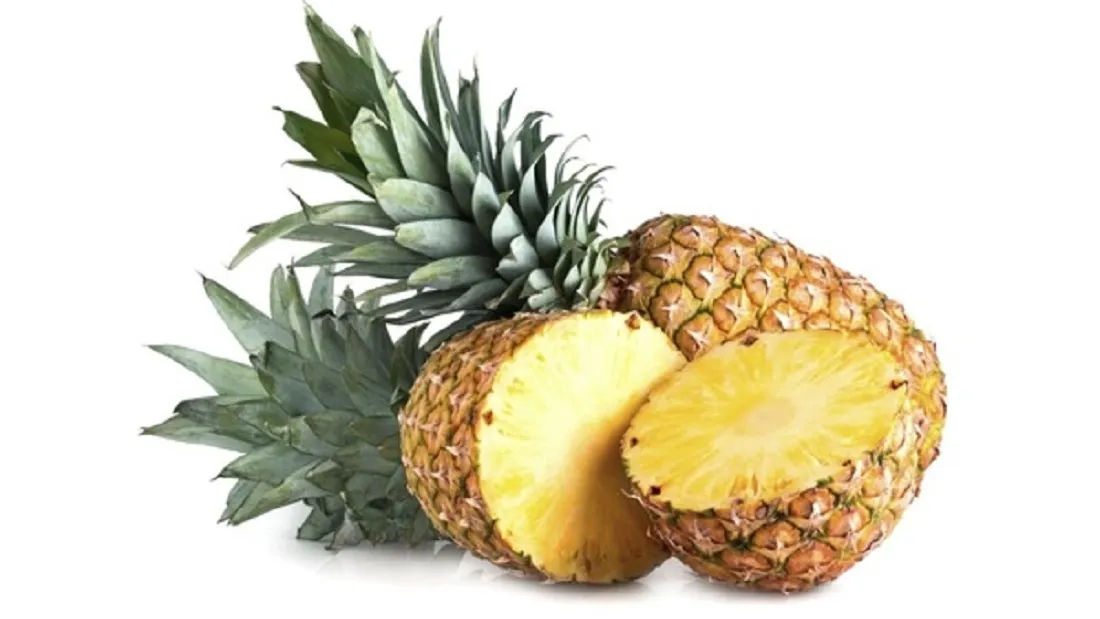
Table of Contents
ToggleEating Pineapple at Night :
Eating pineapple at night can be beneficial for your health. However, it is important to eat pineapple in moderation and to be aware of any potential side effects.
Pineapple is a delicious and nutritious fruit that is packed with vitamins, minerals, and antioxidants. But is it okay to eat pineapple at night? Some people believe eating pineapple at night can cause heartburn or upset stomach. Others believe that it can help you sleep better.
In this blog post, we will explore the pros and cons of eating pineapple at night. We will also provide some tips for eating pineapple safely and avoiding any potential side effects.
Positive Aspects:
1- Nutrient-Rich
When we refer to “nutrient-rich,” we’re talking about foods that offer an abundance of essential nutrients relative to their calorie content. In the case of pineapple, this tropical fruit is a prime example of nutrient-rich fare. It stands out not only for its sweet and tangy taste but also for its exceptional nutritional profile. Pineapple offers a wide array of vital vitamins, minerals, and other health-promoting compounds while being relatively low in calories. Here’s a closer look at the nutrient-rich qualities that make pineapple a nutritional powerhouse:
Vitamin C: Pineapple is renowned for its impressive vitamin C content. Vitamin C is a potent antioxidant that plays pivotal roles in supporting your immune system, enhancing skin health, and aiding in the healing of wounds. Remarkably, just a single cup of fresh pineapple chunks can supply you with your recommended daily vitamin C intake.
Vitamin A: Pineapple doesn’t stop at vitamin C; it also provides a significant vitamin A dose. This nutrient is vital for maintaining sharp vision, bolstering immune defenses, and ensuring proper cell growth.
Bromelain: Pineapple is distinctive for containing an enzyme called bromelain, linked to various health benefits. Among its attributes, bromelain is believed to assist in digestion by breaking down proteins, potentially reducing inflammation. This makes it a natural remedy for digestive discomfort for some individuals.
Dietary Fiber: Pineapple is a source of dietary fiber, which plays an essential role in digestive health. Fiber promotes regular bowel movements, helps maintain healthy cholesterol levels, and imparts a feeling of fullness, which can be advantageous if you’re mindful of your calorie intake.
Minerals: Pineapple delivers essential minerals, including manganese and copper. Manganese is instrumental in bone formation and wound healing, while copper is indispensable for red blood cell production and the development of connective tissue.
Hydration: Pineapple’s high water content keeps you hydrated, particularly in warmer weather. Adequate hydration is crucial for your overall well-being.
Antioxidants: Pineapple boasts various antioxidants, such as flavonoids and phenolic acids. These compounds are vital in shielding your cells from oxidative stress, potentially reducing the risk of chronic diseases.
Adding nutrient-rich pineapple to your diet can be a delightful and health-conscious choice. Pineapple provides a satisfying blend of flavours and nutritional advantages that enhance your daily menu, whether savored fresh, incorporated into a fruit salad, or blended into a refreshing smoothie.
2- Digestive Enzymes
In the discussion about whether eating pineapple at night is a good or bad idea, one key factor that comes into play is the presence of digestive enzymes, particularly bromelain, in pineapple. Bromelain is a collection of natural enzymes in pineapple and has garnered attention for its potential health benefits.
Bromelain’s Role in Digestion: Bromelain is a group of enzymes that primarily aids in the digestion of proteins. Bromelain can work synergistically with your body’s digestive enzymes to break down the protein-rich foods you eat. This is why pineapple is often recognized for its ability to assist digestion.
Potential Benefits at Night: If you indulge in pineapple as an evening snack, its bromelain content may provide certain advantages. Late-night eating can sometimes lead to digestive discomfort, especially if heavy or hard-to-digest foods are consumed. Pineapple’s bromelain may offer a helping hand by promoting protein digestion and potentially reducing the risk of feeling overly full or experiencing digestive upset.
Digestive Comfort: When you eat pineapple at night, bromelain could assist in breaking down the protein components of your meal, making it easier for your body to process. This may contribute to a feeling of digestive comfort, allowing you to sleep more peacefully without the discomfort of indigestion.
Balancing Act: While bromelain in pineapple can be beneficial, it’s important to strike a balance. Pineapple also contains natural sugars and dietary fiber, which could affect your sleep if consumed excessively. Therefore, moderation is key when incorporating pineapple into your evening routine.
Consider Individual Tolerance: Just as with any food, individual tolerance varies. Some people may find that eating pineapple at night is a delightful and digestive-friendly choice, while others may need to be mindful of their reactions to acidic or fibrous foods before bedtime.
3- Low in Calories
When considering whether eating pineapple at night is a good or bad choice, one notable advantage to highlight is its low-calorie profile. Pineapple, a tropical delight renowned for its sweet and tangy flavor, is remarkably light on the calorie scale, making it an appealing option for those conscious of their calorie intake, especially before bedtime.
Calorie Content: Pineapple is naturally low in calories, with approximately 82 calories per one-cup (165-gram) serving of fresh pineapple chunks. This makes it a relatively low-calorie fruit compared to many other late-night snack options.
Weight Management: For individuals who are mindful of their weight or trying to maintain a healthy weight, choosing foods that are low in calories can be advantageous. If not done thoughtfully, late-night snacking can contribute to excess calorie intake, potentially affecting overall weight management.
Satiety: Despite its low calorie count, pineapple contains dietary fiber, which can impart a sense of fullness and satisfaction. This can be beneficial for those who wish to curb late-night cravings without consuming many calories.
Balancing Act: Eating low-calorie foods like pineapple can be part of a balanced approach to nighttime eating. By opting for a light, nutrient-rich snack like pineapple, you can enjoy a sweet treat without the concern of excessive calorie intake before sleep.
Nutrient Density: Pineapple’s low-calorie nature doesn’t mean it lacks nutritional value. On the contrary, it is packed with essential vitamins and minerals, particularly vitamin C, which can support your immune system and overall health without contributing significantly to your calorie count.
4- Hydration
Eating pineapple at night can be hydrating because it is a good water source. Pineapple is about 86% water, so it can help to keep you hydrated. Additionally, pineapple contains electrolytes, minerals that help regulate fluid balance in the body.
However, it is important to note that pineapple also contains sugar. Eating too much sugar can lead to dehydration. Therefore, eating pineapple in moderation and drinking plenty of water throughout the day is important.
- Hydration: Pineapple is about 86% water, so it can help to keep you hydrated.
- Electrolytes: Pineapple contains electrolytes, minerals that help regulate fluid balance in the body.
- Vitamin C: Pineapple is a good vitamin C source, an important nutrient for the immune system.
- Bromelain: Pineapple contains bromelain, an enzyme that has anti-inflammatory properties.
- Digestion: Pineapple contains enzymes that help to break down food and improve digestion.
- Cancer prevention: Pineapple contains antioxidants that may help to protect against cancer.
Negative Aspects:
1- Acidic Nature
In the ongoing discussion of whether eating pineapple at night is a wise choice, it’s crucial to consider the acidic nature of this tropical fruit. Pineapple is known for its delightful sweetness, but it also contains natural acids, which can have implications for those who enjoy it close to bedtime.
Citric Acid and Vitamin C: Pineapple acidity is primarily due to its citric acid and vitamin C content. While these compounds are essential for health and contribute to the fruit’s refreshing taste, they can introduce certain considerations when consumed at night.
Acid Reflux Risk: For individuals prone to acid reflux or gastroesophageal reflux disease (GERD), consuming acidic foods like pineapple, particularly in large quantities, can trigger heartburn or discomfort, especially when lying down. The backward flow of stomach acid into the esophagus can lead to symptoms like burning sensations and irritation.
Sensitive Stomachs: Even for those without specific digestive conditions, a sensitive stomach may react negatively to acidic foods when consumed too close to bedtime. Some people may experience mild discomfort or a feeling of fullness that can disrupt their sleep quality.
Moderation Is Key: While the acidic nature of pineapple can pose potential challenges for nighttime consumption, moderation is key. Eating a small serving of pineapple or spacing out your snack time from bedtime can reduce the risk of experiencing acidity-related discomfort.
Personal Tolerance: It’s important to recognize that individual tolerance varies. Some people may enjoy pineapple at night without any issues, while others may find it more agreeable to avoid acidic foods before sleep.
2- Sugar Content
When evaluating whether eating pineapple at night is a favorable choice, it’s important to consider this tropical fruit’s natural sugar content. Pineapple is known for its sweet and irresistible flavor, which is largely attributed to the presence of natural sugars, primarily fructose. Understanding the sugar content can help you make an informed decision regarding late-night consumption.
Natural Sugar: Pineapple contains naturally occurring sugars, particularly fructose. While these sugars are unrefined and come from a natural source, they are still considered sugars, which can affect blood sugar levels and energy levels.
Energy Boost: The sugars in pineapple can provide a quick source of energy. While this can be advantageous during the day, especially for those who need a boost of energy, it may only be ideal after bedtime. Consuming sugary foods before sleep might lead to fluctuations in blood sugar levels, potentially affecting your ability to fall asleep or sleep soundly.
Individual Response: Sugar tolerance varies from person to person. Some individuals may be more sensitive to sugar-induced energy spikes and crashes than others. Pay attention to how your body responds to eating pineapple at night to determine if it impacts your sleep quality or comfort.
Balancing Act: Enjoying pineapple at night can be a delightful treat, but it’s essential to do so in moderation. Opting for a reasonable portion size can mitigate potential sugar-related issues while allowing you to savor pineapple’s sweet, tropical goodness.
Timing Matters: If you eat pineapple at night, consider doing so at least a few hours before bedtime. This can give your body time to digest the sugars and reduce the likelihood of experiencing sugar-related discomfort while trying to sleep.
3- Fiber Content
It’s essential to consider this tropical fruit’s fibre content. Pineapple contains dietary fiber, which can benefit digestive and satiety, particularly when consumed before bedtime.
Dietary Fiber: Like many fruits, pineapple is a source of dietary fiber. Dietary fiber is a carbohydrate that the body cannot digest or absorb. Instead, it passes relatively intact through the digestive system, providing several advantages:
Digestive Health: Fiber plays a crucial role in promoting digestive health. It adds bulk to the stool, which can help prevent constipation and maintain regular bowel movements. For some individuals, enjoying pineapple at night can contribute to a comfortable and uninterrupted night’s sleep by supporting healthy digestion.
Satiety: Fiber can contribute to a feeling of fullness and satiety, even when consumed in small quantities. This can be advantageous if you’re looking for a satisfying late-night snack that won’t leave you feeling overly hungry or tempted to overindulge in less healthy options.
Blood Sugar Control: Fiber can help regulate blood sugar levels by slowing the absorption of sugars into the bloodstream. This can be particularly beneficial for individuals concerned about blood sugar spikes and crashes, even at night.
Moderation Matters: While the fiber content of pineapple offers digestive and satiety benefits, it’s important to consume it in moderation, especially before bedtime. Excessive consumption of fiber-rich foods late at night may lead to feelings of fullness that could interfere with sleep comfort.
Personal Response: Individual tolerance to fiber varies, so it’s advisable to pay attention to how your body reacts to eating pineapple at night. Some individuals may find it soothing and supportive of their digestive well-being, while others may prefer lighter options.
4- Allergic Reactions
When evaluating whether eating pineapple at night is suitable, it’s essential to consider the possibility of allergic reactions. While most individuals generally well-tolerated pineapple, some people may have allergies or sensitivities to this tropical fruit, which can introduce potential risks, especially when consumed close to bedtime.
Allergies to Pineapple: Allergic reactions to pineapple are rare but can occur. These reactions typically manifest as symptoms such as itching, swelling, hives, or a tingling sensation in the mouth or throat shortly after consuming pineapple. In severe cases, individuals with pineapple allergies may experience difficulty breathing, chest tightness, or anaphylaxis, a potentially life-threatening allergic reaction.
Late-Night Considerations: Eating pineapple at night adds extra caution, as allergic reactions can disrupt your sleep and overall well-being. Symptoms like itching or swelling in the mouth or throat can be uncomfortable, making it challenging to relax and fall asleep.
Individual Sensitivity: Even if you’ve consumed pineapple without issues in the past, sensitivities or allergies can develop over time. Therefore, remaining attentive to your body’s responses is crucial, especially if introducing pineapple into your nighttime routine.
Cross-Reactivity: Some individuals allergic to certain pollens or latex may experience cross-reactivity with pineapple. This means that proteins in pineapple may be similar to those in allergenic substances, potentially triggering allergic reactions in susceptible individuals.
Precautionary Measures: If you suspect you may have a pineapple allergy or have experienced allergic reactions to pineapple, it’s advisable to exercise caution and avoid consuming pineapple at night or any time. An allergist can perform tests to confirm allergies and provide guidance on managing them.
Recommendations:
- Moderation: If you enjoy eating pineapple at night and it doesn’t cause you discomfort, there’s no harm in doing so in moderation.
- Timing: If you’re concerned about digestive issues or acid reflux, try to eat pineapple at least a few hours before bedtime to allow your body time to digest it.
- Portion Control: Be mindful of portion sizes. Eating a small serving of pineapple is less likely to cause digestive discomfort than eating a large amount.
- Personal Tolerance: Pay attention to how your body reacts to eating pineapple at night. If you notice any adverse effects on your sleep or digestion, avoid it close to bedtime.
Delicious and Nutritious Pineapple Snacks
Here are some delicious and nutritious pineapple snacks that you can enjoy:
- Pineapple chunks with yogurt: This is a refreshing and healthy snack that is perfect for a hot day. Simply cut up some pineapple and mix it with your favorite yogurt. You can also add some granola or nuts for extra flavor and crunch.
- Pineapple salsa: This is a great way to add some tropical flavor to your favorite foods. Simply combine diced pineapple, tomatoes, onions, and cilantro. You can also add some lime juice and salt to taste.
- Pineapple skewers: This is a fun and easy snack that is perfect for parties. Simply skewer pineapple chunks, cheese, and ham. You can also add some other fruits or vegetables, such as grapes, strawberries, or peppers.
- Pineapple smoothie: This is a quick and easy way to get your daily dose of fruit. Simply blend together pineapple, yogurt, milk, and honey. You can also add some ice cubes to make it more refreshing.
- Pineapple upside-down cake bites: This is a delicious and decadent snack that is perfect for special occasions. Simply make a mini pineapple upside-down cake and cut it into bite-sized pieces.
In conclusion, eating pineapple at night can be part of a healthy diet as long as it doesn’t lead to discomfort or disrupt your sleep. Listening to your body and adjusting your eating habits is essential. Consult a healthcare professional or registered dietitian for personalized advice if you have specific dietary concerns or medical conditions.
You may like
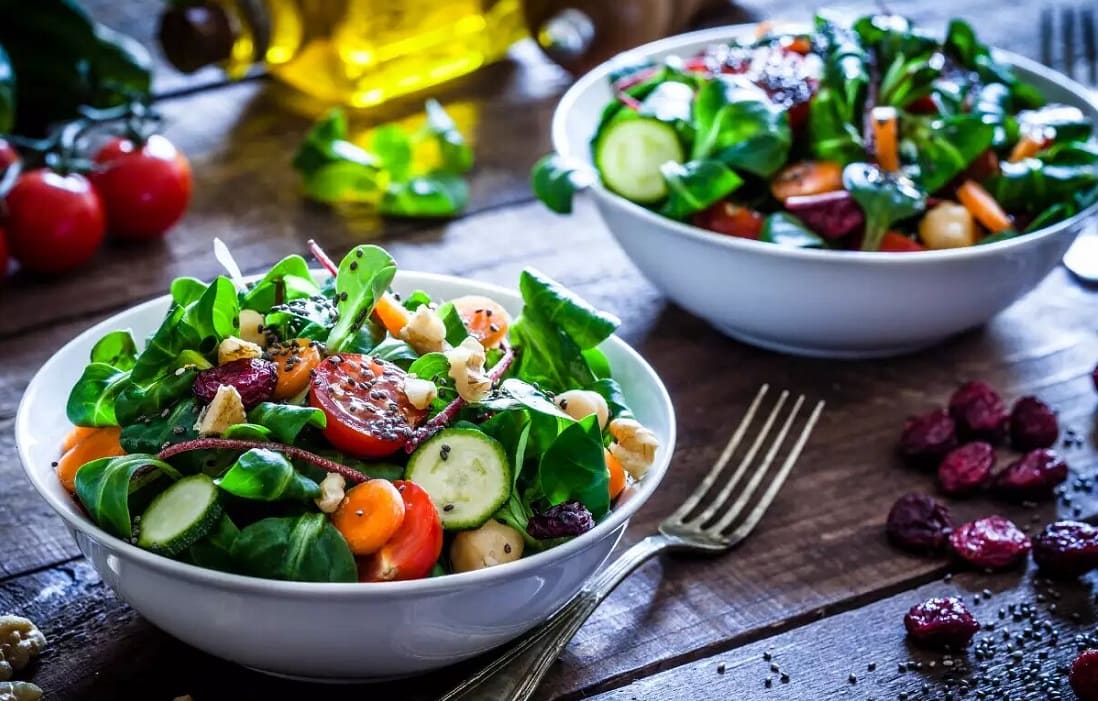
Table of Contents
ToggleBest Diets for Women
Females over 50 may advantage from diverse diets such as the Mediterranean, flexitarian, Sprint, and Intellect. The most excellent count calories is the one you’ll stick to long-term, making you are feeling your best.
For females attempting to move nimbly into the afterward stages of life, the sheer number of diet options is confounding — and not all of them are great for your wellbeing.
In the event that you’re over 50, you could be seeking out for a slim down that bolsters heart or brain work, makes a difference control menopause side effects, or boosts your in general wellbeing.
The diets in this article were chosen based on the taking after criteria:
- Easy to follow: Aside from offering clear guidelines and simple shopping lists, the diet doesn’t require supplements.
- Adaptable: You can change according to your preferences and nutritional needs.
- Not overly restrictive: You won’t need to eliminate large groups of foods from your eating plan.
- Nutritionally balanced: You’ll eat plenty of healthy fats, protein, and quality carb sources and micronutrients.
- Evidence-based: Scientific studies back the diet’s health benefits.
1. Best all-around: the Mediterranean diet
The Mediterranean slim down is reliably evaluated as one of the most advantageous eating designs for nearly anybody, counting females over 50.
Based on the eating designs of individuals in Greece and Southern Italy within the 1960s, this count calories is characterized by its moo soaked fat substance. It basically comprises vegetables, vegetables, natural product, nuts, and entirety grains, and it highlights olive oil as the essential source of included fat.
In spite of the fact that it’s overwhelmingly plant-based, it moreover incorporates direct sums of angle and dairy and little amounts of eggs, poultry, and ruddy meat.
Decades of researchTrusted Source illustrate that this eat less diminishes your chance of different unremitting, age-related ailments like heart malady, diabetes, cancer, and mental decay.
This slim down moreover surpasses numerous other well known diets since of its adaptability. No nourishments or nourishment bunches are off-limits — indeed treats and ruddy wine are permitted sparingly.
2. Best for heart health: the DASH diet
Concurring to the Centers for Malady Control and Avoidance (CDC), heart illness is one of the driving causes of passing for females over 50.
What’s more, rates of tall blood weight — a critical chance figure for heart infection — increment altogether after the onset of menopause.
The Dietary Approaches to Halt Hypertension (Sprint) slim down is planned to avoid and treat tall blood weight, moreover called hypertension.
It’s characterized by its moo sodium substance and accentuation on nourishments wealthy in calcium, potassium, and magnesium, which are known to assist diminish blood weight.
Sodium confinements shift depending on your individual needs. Whereas a few individuals restrain their sodium admissions to no more than 2,300 milligrams (mg) day by day, others go as moo as 1,500 mg. Both numbers adjust with the
The Sprint count calories basically comprises vegetables, natural product, and low-fat dairy, taken after by direct sums of entire grains, vegetables, nuts, seeds, angle, and poultry. Ruddy meat and desserts are by and large debilitated but permitted every so often, and handled or cured meats are prohibited.
The eat less moreover limits salty, ultra-processed nourishments in support of nutrient-dense, entirety nourishments that offer extra benefits, such as diminished cholesterol and made strides blood sugar control.
3. Best plant-based: the flexitarian diet
The Flexitarian eat less may be a semi-vegetarian arrange that’s overwhelmingly plant-based but once in a while incorporates meat, eggs, dairy, and angle.
It’s a great count calories choice for anybody fascinated by boosting their fiber and plant protein admissions. It too recognizes the dietary esteem of creature items, needing to eat them as required.
Compared with the vegan or veggie lover diets, the flexitarian slim down gives more press and omega-3s from nourishments like ruddy meat and angle. It too tends to be higher in calcium — an basic supplement for protecting bone wellbeing in postmenopausal females.
The eating design moreover offers extra benefits for body weight, heart wellbeing, and diabetes avoidance.
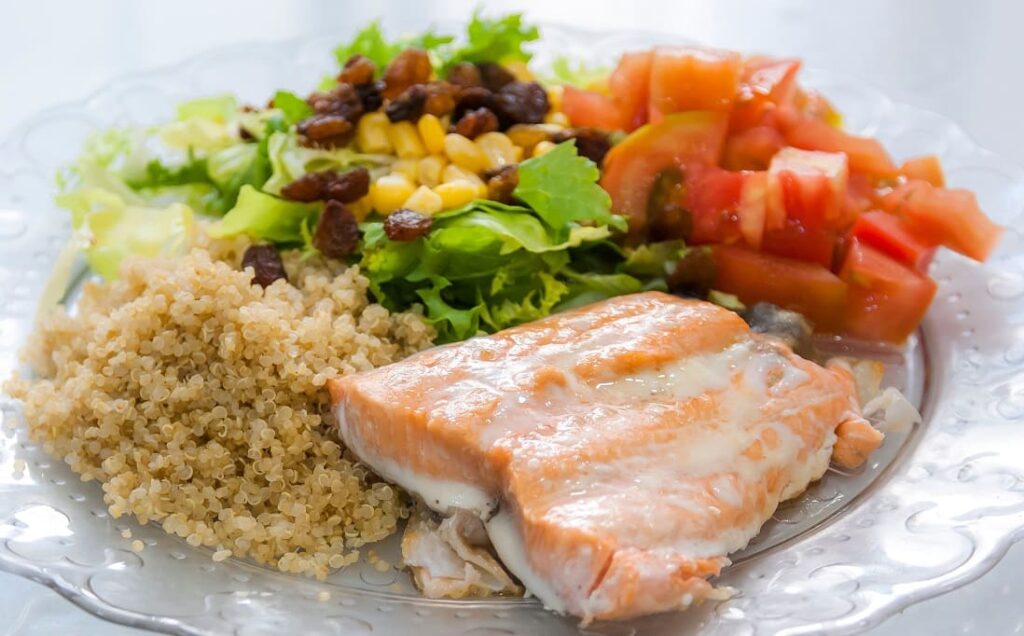
4. Best for brain health: the MIND Diet
Age and sex are essential hazard variables for dementia, the predominance of which is essentially more prominent in females than guys. Generally two-thirds of individuals with Alzheimer’s illness — the foremost common frame of dementia — are females.
The Mediterranean-DASH Mediation for Neurodegenerative Delay (Intellect) count calories was created to decrease the chance of creating Alzheimer’s infection and other sorts of age-related mental decrease. Inquire about proposes that it may offer assistance lower dementia hazard.
As the title suggests, it combines components of the Mediterranean and Sprint diets that have been appeared to back brain wellbeing.
It emphasizes entirety grains, berries, verdant greens, beans, olive oil, and greasy angle. Browned nourishments, ruddy meat, butter, cheese, and desserts are disheartened.
5. Best for those fed up with dieting: intuitive eating
Instinctive eating may be the idealize fit on the off chance that you’ve attempted incalculable craze diets and are prepared to discard the counting calories cycle for great.
Persistent prohibitive slimming down can, in a few cases, lead to a assortment of unfavorable impacts, counting bone misfortune, bounce back weight pick up, cluttered eating, and decreased quality of life.
Natural eating is an anti-diet program planned to change your count calories attitude and construct a positive relationship together with your body and nourishment. Concurring to a later think about, instinctive eating can offer assistance move forward mental wellbeing and diminish the chance of creating cluttered eating.
In this eat less, no nourishments are prohibited, and no rules direct parcel sizes or meal timing. Instep, the objective is to assist you relearn how to tune in to your body’s common starvation and totality.
Extra investigate suggests that those who take after this arrange may be more likely to preserve a solid weight, in spite of the fact that it’s worth noticing that weight misfortune isn’t the objective.
What diet works best for women over 50?
When choosing between diets on this list, consider whether you’ll be able still get all the fundamental supplements and any other individual needs you might have.
Females over 50 ought to pay extraordinary consideration to their admissions of particular supplements, such as calcium, vitamin D, protein, and B vitamins. Straightforward dietary alterations or supplements may be justified on the off chance that you do not think you’re getting satisfactory sums of these supplements.
In case your essential objective is to decrease your blood weight, prefer the Sprint eat less. Attempt instinctive eating in case you need to center on self-care and a sound relationship with nourishment. The Mediterranean or Flexitarian diets may be best on the off chance that you aim for a more nutritious, adjusted eat less.
Keep in mind simply do not got to make extreme changes to your count calories. Little, incremental steps may still give critical wellbeing benefits, indeed on the off chance that you’re not taking after your chosen eating pattern superbly.
Some time recently making noteworthy changes to your eat less or including supplements to your schedule, if it’s not too much trouble counsel your healthcare supplier to guarantee it adjusts together with your needs.
Frequently asked questions
What is the best way for a woman over 50 to lose weight?
There isn’t one way for females over age 50 to lose weight since each person’s body is distinctive, and distinctive natural and physical components may influence how your body loses weight. That said, a 2021 consider inspected the impact of different diets on weight misfortune and other wellbeing markers in females after menopause. Its discoveries included:
- For those who are overweight or living with obesity, a low glycemic diet may work better at reducing body fat mass than other diets.
- Low-fat diets may cause a more significant improvement in LDL (bad) cholesterol levels, while low-carbohydrate diets could result in a more substantial improvement in triglyceride and HDL (good) cholesterol levels.
- The Mediterranean diet may help lower blood pressure and the chance of heart disease.
What should a 55-year-old woman eat to lose weight?
To lose weight more effectively in your fifties, eat more whole grains, plenty of fruits and vegetables, nuts and seeds, healthy fats, legumes, fish, and poultry. Eating a higher-protein diet has also been shown to help with weight loss in people over 50.
How many calories should a 50-year-old woman eat to lose weight?
According to the 2020-25 Dietary Guidelines, a 50-year-old female needs roughly 1800 calories daily to maintain weight. Still, many factors influence this estimate, including medications, activity level, genetics, and lean body mass, which is the weight of your body fat subtracted from your overall weight. To lose one pound per week, try cutting about 500 calories daily.
The Mifflin-St Jeor equation gives a more accurate estimate of caloric needs. That said, it’s a good idea to first speak with your doctor to estimate your personal caloric needs for weight loss.
The bottom line
In case you are a lady over 50, it’s frequently troublesome to know which slim down is best, particularly as you’re encountering ageing-related physical changes.
The Mediterranean, Flexitarian, Sprint, and Intellect diets, nearby instinctive eating, give different benefits for your heart, brain, and generally wellbeing.
Fruits
17 Best Foods for Hair Growth and Hair Regrowth: What to Eat, Drink & Avoid
Published
5 months agoon
February 14, 2024By
P.K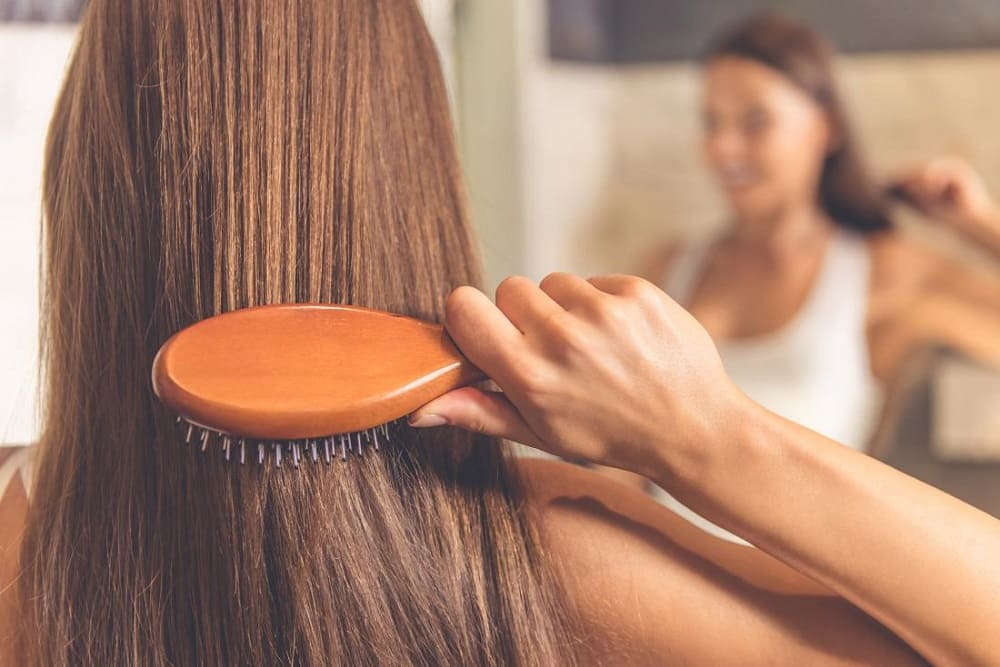
Table of Contents
ToggleWhat Foods Help Regrow Hair?
We are continuously prepared for the photos. Longer, more grounded, and more sound hair is what everybody looks forward to. But how would you guarantee you’ll keep your hair sound and generous? You’ll be able to care for your scalp in a few ways and keep your hair solid. But one fundamental implication of having substantial hair development is your count of calories. Are we joking? Not precisely. Your hair can be a clear sign of your legitimate state of health, which has provoked us to create this direct so you’ll beware of your hair through a tremendous slim down.
Hair loss can be slowed down by changing eating habits. However, for the loss that has already happened, you might have to consult an expert for treatment. Kolors has all the treatment options to regain lost hair. You can go for hair transplantation, hair regrowth, hair strengthening, and anti-hair fall treatment. Contact our nearby Kolors centre, and we will help you to regain your lost hair.
Why is Food So Important in caring for your hair?
Each strand of your hair is made of cells, similar to the other parts of your body. In any case, these cells inside the hair contain a more challenging protein called Keratin. As a result, the kind of hair you’ve got is dry, smooth, fizzy, or indeed sleek. All these have a closer connection to the sort of nourishment you expend.
Your hair and the cells inside it require continuous sustenance and food. They would require the correct sum of vitamins and minerals if you need them to be solid and solid. Typically, this is where fabulous hair-growth nourishments come into play.
List of 17 Best Foods for Hair Growth and Hair Regrowth & Thickness
You do not have to go for additional supplements to develop solid hair. Instep, you’ll be able to feed them with a standard nourishment intake. In any case, appropriate nourishment ought to be fundamental to guarantee sound hair development.
The key is to strike the proper adjustment in your nourishment fixings. Going through the after-nourishment things and incorporating them into your daily diet proportionately can be supportive. An appropriate and adjusted slim-down can assist your hair and get a steady supply of minerals, proteins, and vitamins. Underneath are a few of the finest nourishments for hair development in India
1. Promote growth with eggs
See any asset that bargains with hair development and hair wellbeing. The primary basic say you’ll come over would be that of eggs.
Appropriately so. Eggs are the most excellent sources of Keratin, and as we have now clarified, Keratin is the fundamental protein that your hair needs.
Do note that the egg yolk would contribute to better hair development. Eggs contain Biotin. Biotin is an essential component that can be supportive within the generation of Keratin. If you’re confronting any lack of Biotin, expending eggs can assist you in accomplishing that.
Egg Nutrients
Nutrient Egg White (1 large) Egg Yolk (1 large) Whole Egg (1 large)
Calories 17 55 71
Protein 3.6g 2.7g 6.3g
Fat 0.06g 4.5g 5.0g
Carbohydrates 0.24g 0.6g 0.6g
Cholesterol 0mg 210mg 186mg
Vitamin D 0IU 18.3IU 17.5IU
Calcium 2.3mg 21.9mg 28.5mg
Iron 0.03mg 0.4mg 0.5mg
Sodium 55mg 8mg 68mg
Nutrient | Egg White (1 large) | Egg Yolk (1 large) | Whole Egg (1 large) |
Calories | 17 | 55 | 71 |
Protein | 3.6g | 2.7g | 6.3g |
Fat | 0.06g | 4.5g | 5.0g |
Carbohydrates | 0.24g | 0.6g | 0.6g |
Cholesterol | l 0mg | 210mg | 186mg |
Vitamin D | 0IU | 18.3IU | 17.5IU |
Calcium | 2.3mg | 21.9mg | 28.5mg |
Iron | 0.03mg | 0.4mg | 0.5mg |
Sodium | 55mg | 8mg | 68mg |
Eggs can also supply some zinc, selenium, and other hair-healthy supplements. So, in case you’re checking up on the food options for the most excellent hair development, eggs ought to be the primary thing on your plate.
2. Fight dull locks with sweet potatoes.
Beta-carotene is another ingredient that is quite essential for hair growth and its healthy looks. Sweet potatoes are a rich source of beta-carotene.
Beta-carotene is an essential ingredient for synthesizing Vitamin A, which helps care for your hair’s health.
A medium-sized sweet potato should offer assistance given four times your daily requirement of vitamin A. Expending sweet potatoes in customary amounts throughout the day will guarantee a sound scalp and a great hair wipe.
Investigation has demonstrated that sweet potatoes can activate the generation of sebum. Sebum is an essential component that keeps your hair solid. A few other benefits of sweet potatoes and, in turn, Vitamin A incorporate progressing the development of thicker hair and speeding up the advancement of the hair. It, too, guarantees hair follicles are not relapsed.
Sweet Potato Nutrients
NutrientAmount per 100g Daily Value (%)
Calories 86 4%
Protein 1.6g 3%
Fat 0.1g 0%
Carbohydrates 20.1g 7%
Fiber 3g 12%
Vitamin A 14,187IU 284%
Vitamin C 2.4mg 4%
Potassium 337mg 10%
Iron 0.7mg 4%
Calcium 30mg 3%
NutrientAmount per 100g | Daily Value (%) |
Calories | 86 4% |
Protein | 1.6g 3% |
Fat | 0.1g 0% |
Carbohydrates | 20.1g 7% |
Fiber | Fiber 3g 12% |
Vitamin A | 14,187IU 284% |
Vitamin C | 2.4mg 4% |
Potassium | 337mg 10% |
Iron | 0.7mg 4% |
Calcium | 30mg 3% |
3. Berries nourish hair follicles for growth
Berries contain a rich source of vitamin C, which has excellent antioxidant properties. An antioxidant can offer assistance in diminishing the impacts of free radicals.
The body contains free radicals in their standard shape, which can harm hair follicles. Cancer prevention agents viably control the impact of these free radicals and diminish the chance of hair harm.
You’ll check out some berries; nearly all come with a total Vitamin C concentration. Strawberries are one of the standard and best choices for legitimate hair development.
One glass of strawberries can give around 150 per cent of your day-by-day needs of Vitamin C. Vitamin C moreover lets you assimilate press in your slim down.
Press insufficiency can cause frailty, which in turn can initiate hair loss. However, it has moreover been a viable fixing in collagen generation. Collagen may be a protein that makes a difference when you anticipate your hair to be delicate and complex.
Hence, it guarantees that your hair is reinforced.
4. Battle brittle hair with Spinach
Well, Spinach gives you the press in an adequate amount. As we now know within the past segment, press is one of the essential fixings for hair development. Press insufficiency can result in frailty, one of the prime reasons for hair misfortune conditions.
Press and other components like oxygen are essential for the productivity of your blood in circulating supplements to your hair.
Press lack can, in this way, be one of the essential reasons for debilitating your hair strands. Individuals enduring male-pattern hairlessness or premenopausal hair misfortune in females are related to moo serum ferritin levels. Having a customary dose of Spinach can assist you in keeping your hair solid.
It contains different fixings like folate, press, and vitamins A and C. All these fixings are essential for appropriate hair wellbeing and growth!
As we have found in the past segment, Vitamin A supports the skin organs in integrating sebum. The Sebum comes in very helpful in keeping your scalp moisturized. This could guarantee that your hair remains solid. You’ll, too, incorporate other verdant vegetables to ensure comparable impacts. Nearly all green and leafy vegetables give the same wellbeing benefits.
5. Nuts for solid and healthy hair growth
Nuts are undoubtedly the foremost helpful nourishment things to carry. They come with many supplements straightforwardly related to your hair’s wellbeing.
Omega 3 greasy acids are essential for your hair’s health and wellbeing. This can be because they make it solid and thicker. But, tragically sufficient – your body cannot integrate Omega 3 fatty acids.
Wild, like Walnuts and almonds, are the most excellent sources of these essential supplements. An ounce of almonds has been watched to supply you with around 35 per cent of your day-by-day needs of Vitamin E.
Nuts can give other essential supplements, including vitamin B, Zinc, and basic greasy acids. Specialists accept that a lack of these vital fixings influences hair misfortune. Nuts come with other well-being benefits apart from making a difference in hair care. These benefits incorporate lessening irritation and a decreased hazard of heart ailments.
In substance, nuts constitute a fundamental fixing of your count calories for their wellbeing benefits. Hair development could be a vital portion of these benefits.
6. Seeds promote hair growth and thickness.
Seeds give you basic supplements and fewer fats and calories. In expansion, most supplements inside the sources guarantee the correct hair development.
Some supplements within the seeds incorporate vitamin E, Zinc, and selenium. In expansion, sources like nuts give adequate Omega-3 greasy acids.
As we discussed recently, Omega 3 greasy acids are supportive in lending thickness and quality to the hair. It would offer assistance if you picked a blend of arranged seeds for proficient execution and digestion of different supplements.
A few of the seeds that are viable in making a difference in your hair development are flaxseeds, chia seeds, and sunflower seeds.
Sunflower seeds offer a tremendous supply of Vitamin E and Vitamin B. An ounce of Sunflower seeds gives around 50 per cent of your everyday Vitamin E necessities. In expansion, flaxseeds and China seeds have been watched to be wealthy sources of omega-3 greasy acids.
7. Achieve fullness with oysters.
Are you a non-vegetarian? In that case, you have a wealthy Zinc source at your transfer. What significance does zinc have in supporting hair development?
Zinc ensures healthy scalp conditions. Clams can assist you in renewing the amount of Zinc in your body. If your body has any zinc insufficiency, it’ll be characterized by hair loss or debilitated and gloomy hair.
Besides keeping your scalp sound, Zinc caters to the hair growth and repair cycle. A zinc lack can cause a condition alluded to as telogen effluvium.
It is usually characterized by a hair misfortune condition that can be reversible. A significant sum of Zinc within the frame of supplements can ideally switch hair misfortune and quicken hair follicle recovery.
Having caught on that, it ought to be famous that the abuse of Zinc can cause hair misfortune. That’s accurately why we propose taking Zinc as nourishment instead of through supplements. As obtained from the nourishment, zinc will be in smaller and more beneficial amounts. Incorporate Clams in an adequate amount on a fortnightly premise.
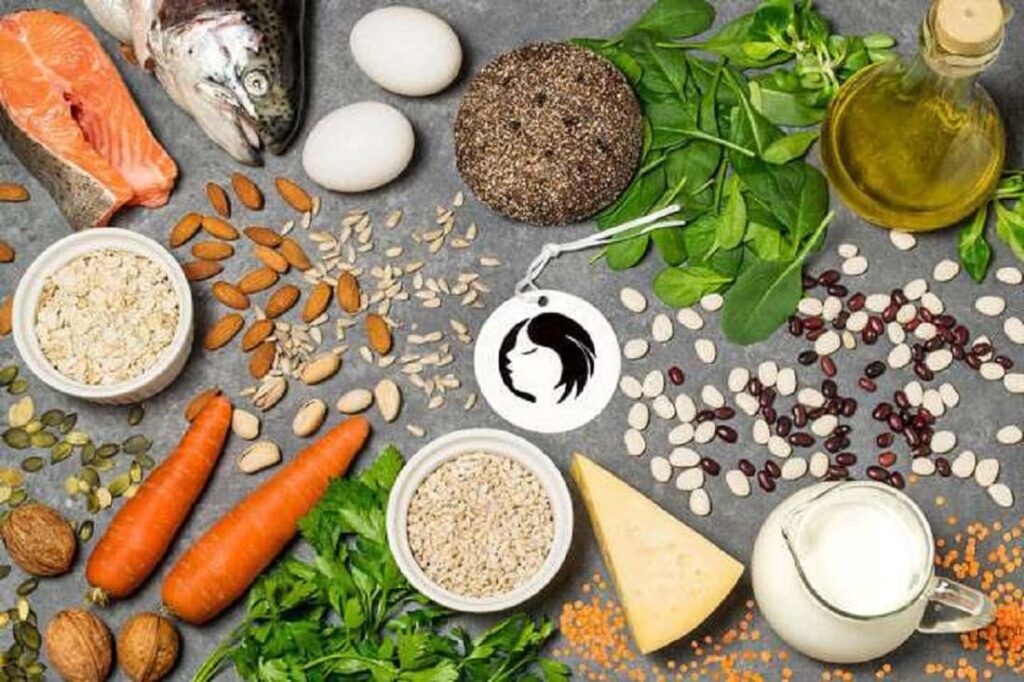
8. Avocados for nourished and lustrous hair growth
Avocados are another source of rich fats. But, separated from fats, they are another wealthy source of Vitamin E. We have more than once expressed the significance of Vitamin E in terms of the wellbeing of your hair. An average-sized Avocado can offer assistance, giving around 20 per cent of your Vitamin E prerequisites.
The antioxidant property would make Vitamin E one of the leading choices that diminish the impact of free radicals.
Separated from neutralizing free radicals, vitamin E helps move forward in blood circulation viably and effectively. Legitimate blood circulation will offer assistance in advance of the working of the hair follicles.
Vitamin E helps you adjust the pH levels within the blood. A high pH level of the blood can clog the hair follicles. You’ll utilize the Avocado as a smoothie or a serving of mixed greens.
In expansion to Vitamin E, it provides a wealthy source of monounsaturated fats. Given that our body does not create the fundamental greasy acids, avocados frame an essential component of your diet that you eat less for sound hair. The need for basic greasy acids has been credited to hair misfortune.
9. Carrots for scalp health and hair growth
Carrots do come with a range of wellbeing benefits. Moderately drink carrot juice each day and develop solid hair.
Hair is one of the fastest-growing tissues in your body, and Vitamin A is a fixing that helps with the development of your hair.
Vitamin A is fundamental for developing nearly every cell in your body. Carrots, moreover, assist you in creating Sebum. The Sebum has been watched to keep the scalp moisturized. It also helps guarantee that your scalp and the roots of your hair are healthy.
With the accentuation of Vitamin A within the development of hair and other cells of your body, Carrots are a fabulous source of Vitamin A. Eating whole carrots in raw form and picking carrot juice can be the finest alternative to make your hair solid and healthy.
10. Shine with Salmon
Another fabulous choice for non-vegetarians is that salmon could be a wealthy source of vitamin D. Vitamin D is the most excellent supplement and is essential for a sound scalp. A solid scalp could be a crucial option for developing solid hair.
Separated from Vitamin D, it is additionally a source of greasy acids. One of the foremost common fatty acids accessible in Salmon incorporates Omega 3 greasy acids. Salmon makes a difference and causes the hair follicles to be more grounded. In this manner, it’ll offer assistance to develop solid hair.
11. Yellow Pepper, rich in vitamin C
Yellow Pepper consists of Vitamin C. It is clearly understood from what we have studied in the previous sections of this post that Vitamin C helps you reduce and neutralize the effects of free radicals.
Free radicals generally cause hair breakage. The antioxidant properties of Vitamin C have helped control the effect of free radicals.
Yellow Pepper has been the most potent source of vitamin C. Therefore, you can ensure that the hair follicles and the shaft get more robust with the help of Vitamin C.
Research has indicated that yellow Pepper contains more vitamin C than citrus fruits. Therefore, including Yellow Pepper in your diet can help enhance the amount of Vitamin C without increasing glucose levels in the blood.
12. Whole Grains provide nutrients for healthy hair follicles.
Amino acids are critical fixings or supplements that guarantee way better hair development. One of the fantastic sources of amino acids is entire grains.
Entire grains are a great source of Biotin. Biotin, as we have seen while discussing eggs, may be an essential fixing that helps you create amino acids. They, too, contain other nutrients like press, Zinc, and B vitamins.
Biotin makes a difference within the multiplication of the cells and, in this way, makes a difference in your hair development. Zinc, as we know, can create sebum and, in this way, helps you keep your scalp moisturized.
13. Fatty Fish have omega-3 fatty acids for improved scalp health.
We have, as of now, examined Salmon. A few other greasy angles, like Herring and Mackerel, can be an incredible offer of assistance in making a difference in your hair development.
They are a wealthy source of omega-3 greasy acids, and as we have now learned, these fatty acids offer proficient assistance in hair development. The greasy acids’ antioxidant properties help decrease hair misfortune and make strides in hair thickness. The slippery angle contains protein, selenium, vitamin D3, and B vitamins. As of now, we have shown within the over dialogue that all these fixings are essential and supportive in moving forward your hair development and solid hair.
14. Shrimps for strengthening hair follicles
Shrimp is another shellfish wealthy in numerous supplements and one of the leading choices for advancing sound hair development. Shrimp is rich in protein, B vitamins, zinc, pressed, and vitamin D. These are critical in hair follicle development and separation.
Given that the need for Vitamin D3 can result in hair loss, Shrimp can be one of the leading alternatives for tending to hair misfortune issues.
Of course, it may not give satisfactory greasy acids, but still – you’ll be guaranteed a smaller sum.
15. Beans for preventing hair loss
Beans have been considered to be one of the fantastic alternatives for plant-based protein. Protein is an essential component for the development of hair. Separated from Protein, Beans are too rich in other fixings like Zinc, press, Biotin, and folate, which advance sound hair development and anticipate hair misfortune.
Zinc is fundamental for an effective hair development and repair cycle. In expansion, Zinc is essential for sound scalp conditions. Need for Zinc or lack of it causes hair drop, even though it can be switched with legitimate count calories.
Beans, moreover, give other supplements like press, Biotin, and folate. As a result, they are once more proficient in making strides in your hair development and wellbeing.
16. Prevent Hair Breakage with Guava
Guava could be a tropical natural product well known for its various benefits for wellbeing. There’s constrained logical inquiry about bolstering the impacts of guava on hair misfortune. Be that as it may, different variables recommend its potential. Underneath are a few which appear that guava can be a vital nourishment against hair breakage –
- Vitamin C: Guava is one of the wealthiest sources besides citric fruits (377 mg of vitamin C in a cup of guava). Vitamin C plays a crucial role in collagen synthesis, a protein that provides structure to the hair strands. Good collagen levels help strengthen the hair follicles and reduce breakage.
- Antioxidant properties: Guava contains antioxidants like vitamin C, lycopene, and flavonoids. These help combat free radicals in the body. The free radicals damage the hair follicles, possibly breaking them. Guava reduces oxidative stress and helps in getting healthier hair.
- Nutrients: Guava is a good source of several nutrients, like vitamins A, E, folate, and potassium. These nutrients help maintain hair health, promote hair growth, and reduce the risk of hair loss.
- Anti-inflammatory: Guava contains compounds with anti-inflammatory properties like quercetin and other flavonoids. These compounds help reduce inflammation in the scalp.
17. Lentils provide iron and protein for hair thickness.
Lentils have all the fundamental supplements for hair development, like protein, press, and Biotin. Protein is the building piece of the hair. Subsequently, a need for protein leads to hair misfortune. Per a ponder distributed by the Diary of Investigative Dermatology, a slim-down void of protein can lead to hair misfortune. For veggie lovers, lentils can be a great source of protein and ought to be a portion of the slim-down arrangement.
Press makes a difference and delivers ruddy blood cells, which carry oxygen to the hair follicles. In another study, it was found that settling press lack can offer assistance in advancing solid hair development. The study was done by Seoul National College College of Medication, Seoul, Korea. Keratin is the protein that makes a difference in the hair’s structure, and lentils offer more assistance in its generation as they contain Biotin.
Well, that’s how an alter in a solid eat less and eating propensities can assist in making strides in your hair development and regrowth.
Need for solid fixings like vitamins A, B, C, D, and E, Zinc, protein, essential greasy acids, Biotin, and protein can result in hair misfortune. It can also cause other unfortunate hair conditions like gloom, breakage, and part hair.
What makes it a fantastic alternative is rectifying this lack, which is simple and conceivable. It would offer assistance if you changed your eating propensities and are excellent in tending to your hair development and regrowth concerns.
Protein, Calories, and Vitamins in Foods Good for Hair Growth and Hair Regrowth
Food | Calories (per 100g) | Protein (per 100g) | Vitamin Types |
Eggs | 143 | 13 g | Vitamin D, Vitamin B12, Vitamin A |
Sweet Potato | 86 | 1.6 g | Vitamin A, Vitamin C |
Berries | 57 | 0.7 g | Vitamin C, Vitamin K |
Spinach | 23 | 2.9 g | Vitamin A, Vitamin C, Vitamin K |
Nuts | 607 | 20 g | Vitamin E, Vitamin B6 |
Flaxseeds | 534 | 18 g | Vitamin B1, Vitamin B6, Vitamin E |
Sunflower seeds | 584 | 21 g | Vitamin E, Vitamin B1 |
Walnuts | 654 | 15 g | Vitamin B6, Vitamin E |
Almonds | 579 | 21 g | Vitamin E, Vitamin B2 |
Oysters | 102 | 9 g | Vitamin C, Vitamin K |
Avocados | 160 | 2 g | Vitamin C, Vitamin K |
Carrots | 41 | 0.9 g | Vitamin A, Vitamin K |
Salmon | 206 | 20 g | Vitamin D, Vitamin B12, Vitamin B6 |
Yellow Pepper | 27 | 1 g | Vitamin C, Vitamin A |
Shrimps | 99 | 24 g | Vitamin B12, Selenium, Zinc |
Nutrients for Hair Growth and Food Sources Rich in Them: Vitamins and Minerals
Vitamin/Mineral | Role in Hair Growth | Food Sources |
Vitamin A | Promotes healthy scalp and sebum production | Sweet potatoes, carrots, Spinach, kale, mangoes, apricots, eggs |
B Vitamins (Biotin, B12, B6) | Healthy hair follicles and prevent hair loss | Whole grains, eggs, nuts and seeds, meat, and poultry, dairy products |
Vitamin C | Helps produce collagen that strengthens hair | Citrus fruits, strawberries, kiwi, bell peppers, tomatoes, broccoli |
Vitamin D | Helps stimulate hair growth and prevent hair loss | Fatty fish (such as Salmon and tuna), egg yolks, mushrooms |
Vitamin E | Helps improve blood circulation to the scalp | Almonds, sunflower seeds, Avocado, Spinach, Swiss chard |
Iron | carry oxygen to the hair follicles | Red meat, poultry, fish, beans, Spinach, fortified cereals |
Zinc | Promotes hair growth and repairs | Oysters, beef, crab, pumpkin seeds, chickpeas, cashews |
Selenium | Helps prevent oxidative stress on the scalp | Brazil nuts, tuna, eggs, sunflower seeds |
Omega-3 | Fatty Acids Promote scalp health and hair growth | Fatty fish (such as Salmon and mackerel), flaxseeds, chia seeds, walnuts |
Hair Growth and Hair Regrowth Foods FAQs
What nutrient is needed for hair growth?
Some vitamins and minerals, including vitamin D, iron, Biotin, Zinc, and B12, are essential for hair growth.
How does Biotin work for hair growth?
Biotin is vitamin B, which makes a difference in fortifying hair and advancing its development. It is a fundamental fixing of hair development supplements. Nourishments wealthy in Biotin incorporate eggs, nuts, and sweet potatoes.
Can eating a balanced diet improve hair growth?
Yes, eating an adjusted slim-down that incorporates different nourishments can offer assistance in making strides in hair development. Getting sufficient protein, vitamins, and minerals for solid hair is fundamental.
What should I stop eating to stop hair fall?
It would offer assistance if you stopped eating prepared nourishments, sugary snacks, carbonated drinks, liquor, and nourishments tall in immersed fats to halt hair drop. Instep, include sufficient protein, vitamins, and minerals to your day-by-day count calories to decrease hair drop.
Does drinking water thicken hair?
Yes, drinking water is essential for the well-being of your hair. 25% of a person’s hair’s whole weight is water. Lack of hydration can influence the well-being of the hair. When dehydrated, the body employs the accessible water to preserve ideal actual capacities. As a result, hair becomes fragile and dry and is more likely to break. Hair requires fundamental supplements like vitamins and minerals, and water makes a difference in retention. In expansion, water makes a difference in transporting supplements to the hair follicles and advances solid blood circulation.
Fruits
15+ Anti-Aging Foods and Collagen-Friendly Recipes for the 40s and Beyond
Published
5 months agoon
February 14, 2024By
P.K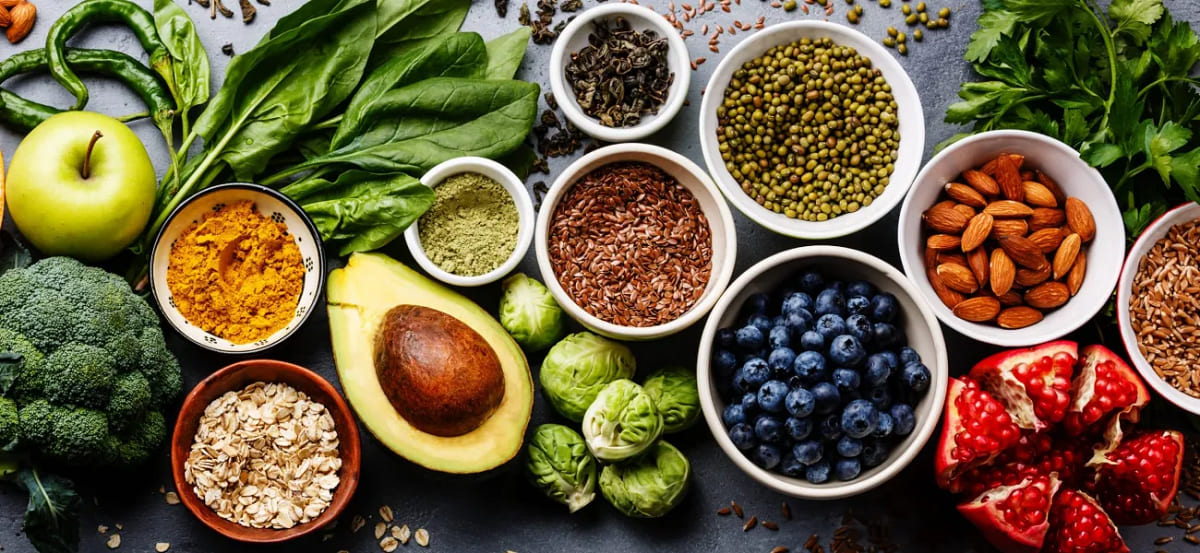
Table of Contents
ToggleWhy eating more collagen helps with ageing
You’ve likely seen a part of promoting for collagen peptides or bone broth collagen scattered all through your social bolsters. And there’s a reason for the collagen highlight right presently:
Collagen is the foremost copious protein in our bodies. It’s what’s found in our skin, stomach related framework, bones, blood vessels, muscles, and ligaments.
Think of it as the stick that holds these things together. And normally, our collagen generation moderates (hi, wrinkles and frail muscles!).
How to meet your body’s needs
You’ve likely seen a part of promoting for collagen peptides or bone broth collagen scattered all through your social bolsters. And there’s a reason for the collagen highlight right presently:
Collagen is the foremost copious protein in our bodies. It’s what’s found in our skin, stomach related framework, bones, blood vessels, muscles, and ligaments.
Think of it as the stick that holds these things together. And normally, our collagen generation moderates (hi, wrinkles and frail muscles!).
- Vitamin C. Found in foods such as citrus fruits, kiwi, and pineapple.
- Copper. It is found in organ meats, cocoa powder, and portabella mushrooms.
- Glycine. It is located in gelatin, chicken skin, and pork skin.
- Zinc. It is found in foods such as oysters, beef, and crab.
Fortunately, bounty of sources of collagen are out there, as well, as well as antioxidant-rich nourishments to assist boost your admissions so your body remains in tip-top shape.
Take after our shopping list and formulas to induce a feel for what it’s like to be eating an anti-ageing eat less. We guarantee it’s delightful.
Four collagen-rich meals to support your body
We made these sound, antioxidant-boosting dinners to assist back your body’s common collagen generation. These dinners take approximately 40 minutes each to get ready and are idealize for individuals looking to supper prep. To have sufficient for the week, we suggest multiplying the serving sizes.
- Quinoa bowl with lemon vinaigrette
Salmon is an great source of omega-3 greasy acids, which are extraordinary for bone and joint wellbeing and brain work. Match that with a scoop of collagen peptides and a few collagen-boosting fixings — such as lemon, sweet potato, kale, and avocado — and you’ve got a huge anti-ageing feast!
Serves: 2
Time: 40 minutes
- Sweet potato tacos with spicy avocado dressing:
Chicken is stuffed full of protein, which is basic for the wellbeing of our bodies. With the dressing as of now containing a scoop of collagen peptides, the sweet potatoes, onion, avocado, and lime make this dinner a genuine anti-ageing companion.
Usually moreover a extraordinary feast to prep ahead of time, particularly on the off chance that you live that on-the-go way of life.
Low-carb option: For the low-carb option, you can nix the tortilla and add some leafy greens to make it a gut-friendly salad.
Serves: 2
Time: 40 minutes
- Kale Caesar salad with chicken
In most Caesar servings of mixed greens, you’ll see romaine as the base. We took a bend and pressed our Caesar serving of mixed greens with more nutrient-dense verdant greens, like kale and spinach. We too refined the conventional Caesar dressing, ordinarily filled with added substances, to keep it as solid as conceivable.
Pro tip: Add nuts or seeds if you’re not feeling bread but still want some crunch. Or fry up some chickpeas!
Serves: 2
Time: 45 minutes
- Sweet potato, ice cream
Longing for sweet potato pie but do not have the time to create it? We get it — pie hull alone can be a bother. Embed sweet potato ice cream:
Your longing for in ice cream frame will fulfill all your needs whereas including (and boosting) collagen measurement.
It serves two, but you’ll need to at slightest triple this formula.
Serves: 2
Time: 5 minutes
What a collagen-friendly basket looks like
Incorporate these anti-ageing, collagen-boosting foods into your diet to make your body more robust. Our easy, go-to shopping list is based on how well they’ll support your body. You can’t go wrong with this.
1: Produce
Ingredients
- sweet potatoes
- kale
- spinach
- shallots
- avocado
- garlic
- lemon
- red onion
- scallions
- lime
- banana
2: Proteins
Ingredients
- chicken breasts
- salmon
3: Dairy
Ingredients
- almond milk
- flax milk
- parmesan
- plain goat milk yoghurt
4: Pantry staples
Ingredients
- quinoa
- red wine vinaigrette
- black beans
- almond butter
- cocoa powder
- vanilla extract
- anchovy paste
- Dijon mustard
- Worcestershire sauce
- sprouted whole-grain bread
- tortillas
- collagen peptides
Signs your body may need more collagen
Signs your body may need more collagen
You may notice these signs and symptoms if your body lacks collagen. Some of the symptoms you may experience are:
- achy joints
- leaky gut
- symptoms of irritable bowel syndrome
- wrinkles and fine lines
- skin dryness
- cellulite
- hair thinning
- blood pressure issues
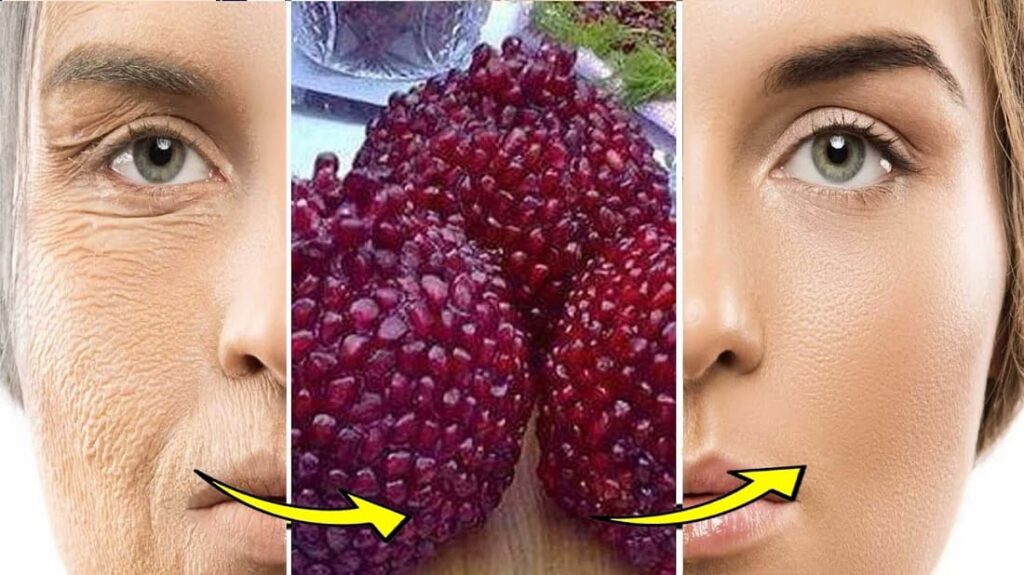
To combat these symptoms…
or minimize them; halt with the sugar and refined carbs and include collagen and collagen-boosting nourishments to your every day eat less. Usually why we’ve made this anti-ageing shopping direct.
While you do not ought to “feel older” to undertake this slim down, research shows physical signs of maturing (like wrinkles and muscle misfortune) begin showing up after you turn 40. But you do not have to be be 40 to begin eating more collagen-friendly, antioxidant-rich nourishments.
Update your pantry with more collagen eats
So, you’ve got your collagen peptides and collagen protein. You’ve made these formulas, but you still need more to differ up the rest of your week. Here are some other fixings you’ll include to your shopping list:
- berries
- butternut squash
- tomatoes
- avocado
- Brussels sprouts
- eggplant
- asparagus
- legumes
Some spices to add include:
- turmeric
- ginger
- green tea
- superfoods like maca, spirulina, and acai
By consolidating these supplements and vitamins nearby expanding your collagen admissions and collagen-boosting nourishments, you’re beyond any doubt to assist your body age as nimbly as conceivable.


The 9 Best Diet Plans for Your Overall Health

The 5 Best Diets for Women Over 50

17 Best Foods for Hair Growth and Hair Regrowth: What to Eat, Drink & Avoid

15+ Anti-Aging Foods and Collagen-Friendly Recipes for the 40s and Beyond

Is Eating Curd at Night Good or Bad? Know the Benefits, Drawback

Is Eating Grapes at Night Good or Bad? Know the Benefits, Drawback and Grape Snacks

Eating Onion at Night is Good or Bad

HOW MUCH SUNSHINE DO TOMATO PLANTS NEED?

White Radish Benefits For the Liver ?

Can We Eat Papaya After Delivery

Can We Eat Papaya and Apple Together?

Can I Eat Apple And Kiwi Together ?

Can We Eat Papaya And Egg Together

Can We Eat Papaya and Pomegranate Together?

Can We Eat Apples And Guava Together?

Can We Eat Banana and Chikoo Together ?

Can We Eat Papaya And Fish Together?

Can we eat mosambi and bananas together?

Can We Eat Apple and Mosambi Together?

Can We Eat Papaya And Watermelon Together?
Trending
-

 Fruits2 years ago
Fruits2 years agoCan We Eat Papaya and Apple Together?
-
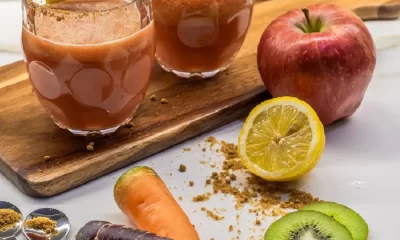
 Health benefits of Soup2 years ago
Health benefits of Soup2 years agoCan I Eat Apple And Kiwi Together ?
-

 Fruits1 year ago
Fruits1 year agoCan We Eat Papaya And Egg Together
-
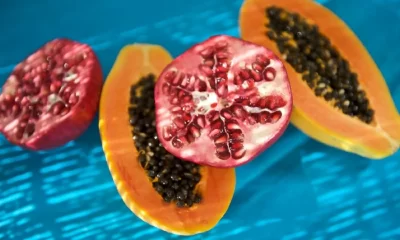
 Fruits2 years ago
Fruits2 years agoCan We Eat Papaya and Pomegranate Together?
-
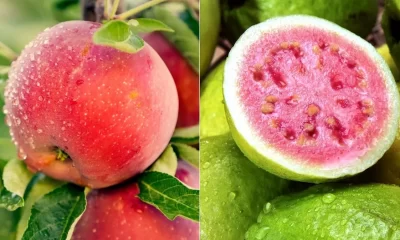
 Fruits2 years ago
Fruits2 years agoCan We Eat Apples And Guava Together?
-
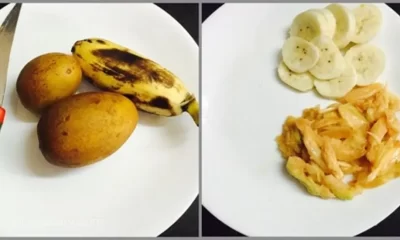
 Fruits2 years ago
Fruits2 years agoCan We Eat Banana and Chikoo Together ?
-
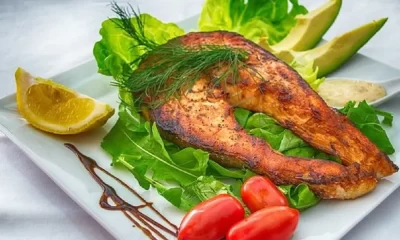
 Fruits1 year ago
Fruits1 year agoCan We Eat Papaya And Fish Together?
-

 Fruits2 years ago
Fruits2 years agoCan we eat mosambi and bananas together?
